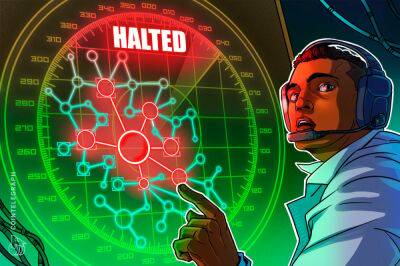Opinion: Digital Currency Group's Genesis implosion marks another bottom in trust for crypto
It looks as if the bear cycle is going to claim another high-profile crypto company. On Jan. 19, Digital Currency Group’s (DCG’s) lending subsidiary, Genesis, filed for Chapter 11 bankruptcy. Here we have yet another industry giant with a tale of incestuous lending, little risk management to speak of and opaque reporting policies.
For market participants, the gathering storm clouds at DCG represent a failure that would have been unthinkable in 2021. Founded by CEO Barry Silbert in 2015, DCG has become a mainstay in crypto’s short existence. Genesis’ filing revealed the full extent of creditors affected by its implosion, which notably included Gemini, the crypto exchange created by Winklevoss twins Cameron and Tyler, to which Genesis said it owed $765 million; metaverse project Decentraland ($55 million); and fund manager VanEck ($53 million).
The company listed more than 100,000 creditors in sum and said it owed its 50 biggest creditors $3.4 billion.
Super sketch that the lending desk Barry owned owed Decentraland $55m when DCG and Grayscale are $MANA investors.Did they buy from the team and then just get cash lent back to them? How the fuck did Decentraland even have $55m left these days?
Some of the debts inspire new questions, including, for instance, why Genesis held a loan from Decentraland when a separate DCG subsidiary — Grayscale — holds 18 million of the project’s tokens. (The holding was valued at $11.74 million as of Jan. 20, down from what would have been $105.8 million at its peak in November 2021.)
Genesis was first rocked by the fall of Three Arrows Capital (3AC), which lost a little more than $500 million in loans from Genesis. The fall of FTX proved to be too much for the lender, prompting it to suspend
Read more on cointelegraph.com





















